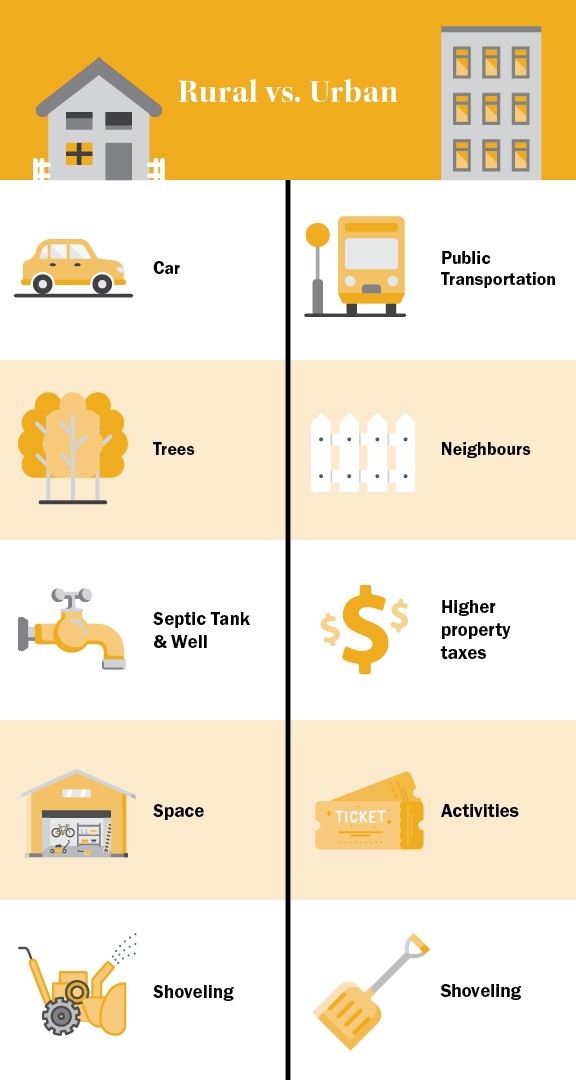The Podcast
Tiffany Pratt talks decorating on a budget
Could your space use a little love? Tiffany Pratt is sharing her upcycling and DIYing secrets to creating your dream space—on a budget.
One of the upsides to living in Atlantic Canada is having the choice to live in either a vibrant city or town or a beautiful rural setting. It’s all about choice and balance: whichever you choose, you’re never too far from a beach or a building.
Because of recent shifts in the way people work and live, Atlantic Canada is seeing a resurgence of interest in rural living trends with homebuyers seeking larger floor plans and green space. RE/MAX says, "The shift to remote working arrangements has afforded homeowners the freedom to choose where they’d like to live, no longer constrained by their office commute."
When it comes to buying a home, it can be tough to choose if you want to live closer to town or closer to nature. After all, you can renovate your house, but your location is a little more permanent. While homes in a town or city might be a little more expensive, you may not need a vehicle to get around. And in a rural area you might get the benefit of a lower price tag, but then you’re on the hook for things like a well and septic system. There’s no right answer—ultimately each location has both pros and cons.

*These are meant to be generalized—every area is different. Make sure you work with a qualified REALTOR® who can make sure you know exactly what you’re signing up for!
Choosing rural can mean any location not within a main town or city. This can be as little as a few kilometers away or deep into the woods. For a family with pets, kids, or niche time-intensive hobbies, choosing to live in a rural area may be the best choice because of the luxury of space. Just remember that with more space comes more responsibility. The further you move away from an urban area, the more thought you need to put into things like your water supply and transportation costs.
Commuting time, gas, insurance, and maintenance can take a toll on your wallet and watch. And depending on your household, one car might not be enough to cut it, so those costs may well double. Though your mortgage payment might be less than living in a city or town, your transportation costs can creep up quickly.
A large backyard means you’ll have all the room you could ever need to play with your pets and little ones, plus the added benefit of spending time outside without technically needing to leave your home. Although that also means you’ll probably become well acquainted with a rake, lawnmower, and snow shovel, too.
Where you live “in town” can play a major role in how much you pay for your place. A house conveniently located downtown may have the benefit of an amazing location, but added expenses, such as higher property taxes, may not make it worth it. In the city, condos can be a more affordable option. You get the convenience of a downtown location, with condo fees that include living expenses such as water, heat, maintenance, parking, and wellness amenities.
A condo fee may seem like an extra hand in your pocket but living in an urban setting can help alleviate transportation stress and cost. Easy access to buses and bike lanes makes it easier to get around with two feet and a heartbeat. Although you may need to plan your grocery trips around rain and snow, you’ll never have to worry about paying for gas or changing a flat tire.
With the city at your fingertips, you have the option to take part in many different activities: nightlife, entertainment, classes, shopping at local stores—the list goes on. But that can also be the challenge, too. Living in a town or city means you typically have less space and need to share what space you do have with other people. Which can be great until your neighbours decide to learn how to play the bagpipes. At 2 AM. On a Wednesday.
Still can’t decide? Contact your local credit union to step up an appointment to chat about your options.